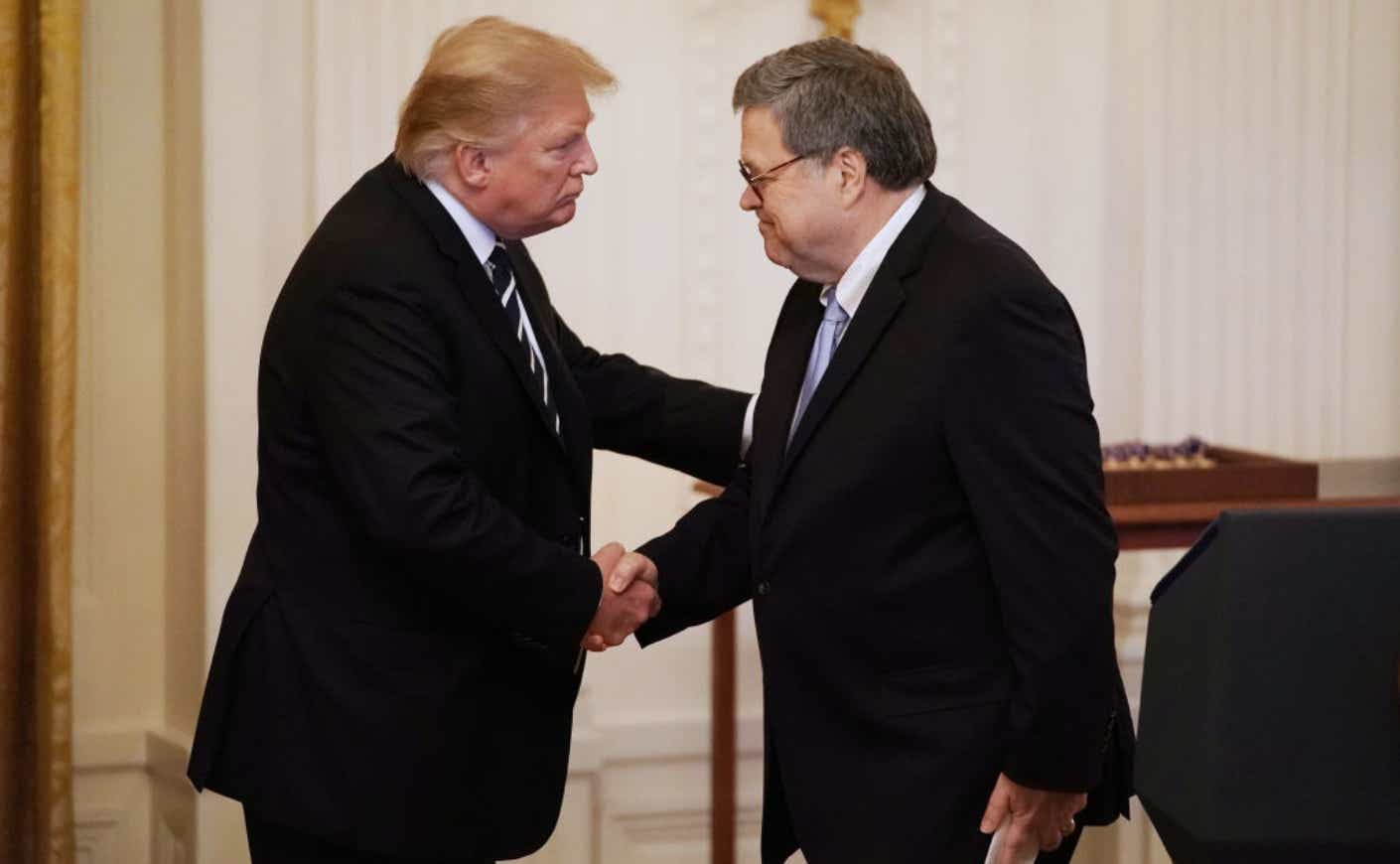A newly released memo from the Department of Justice is shedding light on former Attorney General Bill Barr’s decision not to charge former President Donald Trump with obstruction of justice in Special Counsel Robert Mueller’s investigation into Russian interference in the 2016 election.
According to the 2019 memorandum, which was made public on Wednesday, Barr supported the conclusion that the evidence Mueller laid out in his investigation wasn’t “sufficient to establish” that Trump had committed a crime, adding that there wasn’t a precedent for a prosecution.
“It would be rare for federal prosecutors to bring an obstruction prosecution that did not itself arise out of a proceeding related to a separate crime,” Steven Engle, head of the Justice Department’s Office of Legal Counsel, and his deputy Edward O’Callaghan wrote in the memo, which was signed by Barr.
It’s worth noting that the memo was sent to Barr on the same day he announced that the Justice Department wouldn’t pursue charges against Trump. We’re breaking down whether this conclusion differs from Mueller’s and how it fits into other ongoing investigations into Trump.
What’s in the memo?
Barr, who was considered a fierce ally of the president at the time, backed findings that Trump ultimately couldn’t be charged because it wasn’t clear whether he was actually trying to cover up any wrongdoing — and that the former attorney general interpreted Trump’s actions as legitimate attempts to stop Mueller’s investigation from getting in the way of official White House business. This decision was based on the Department of Justice’s analysis of Mueller’s 448-page report summarizing his team’s findings in the Russia probe.
While the decision to clear Trump has been well-documented, this insight into Barr’s thinking is noteworthy because Mueller didn’t exonerate the president. In fact, he detailed 10 instances in which Trump potentially obstructed justice. These included everything from Trump’s firing of then-FBI director James Comey to his efforts to pressure then-Attorney General Jeff Sessions to walk back his decision to recuse himself from the Russia investigation and warning to others not to “flip” on him. But in their 2019 memo, O’Callaghan and Engel asserted that none of these acts amounted to obstruction of justice.
“The evidence does not establish a crime or criminal conspiracy involving the President toward which any obstruction or attempted obstruction by the President was directed,” the memo stated. It also added that “the president’s public statements could be viewed as efforts to defend himself from public criticism related to the Special Counsel’s investigation or to discourage the witnesses from making what the President believed might be false statements in exchange for a lesser sentence.”
What prompted the memo’s release?
A federal appeals court ordered that the Justice Department release the document after finding that it had been improperly withheld from the government watchdog group, Citizens for Responsibility and Ethics in Washington.
In a statement Wednesday, the group criticized the 2019 memo as showing a “breathtakingly generous view of the law and facts for Donald Trump.”
“It significantly twists the facts and the law to benefit Donald Trump and does not comport with a serious reading of the law of obstruction of justice or the facts as found by Special Counsel Mueller,” it stated.
How does the memo fit into the larger picture?
The release of the unredacted memo comes as the Justice Department investigates Trump once again for potential obstruction of justice.
This time, it’s in connection with whether he mishandled classified documents that he took from the White House to his Mar-a-Lago resort in Palm Beach, Florida. In what marked a major move, Magistrate Judge Bruce Reinhart ordered the release of a redacted version of the affidavit that was used to search his estate. But Reinhart still needs to review the parts that have been edited out of the document and decide whether or not to release it according to the public, according to Reuters.
“Given the intense public and historical interest in an unprecedented search of a former President’s residence, the government has not yet shown that these administrative concerns are sufficient to justify sealing,” he wrote.









